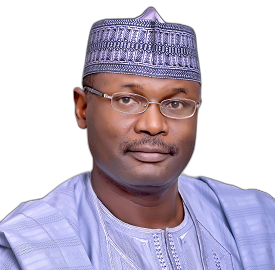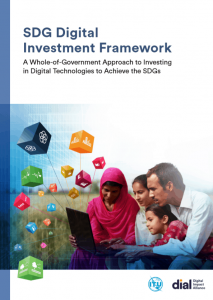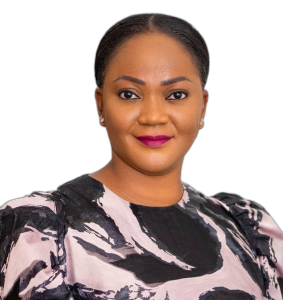The adoption of electronic transmission of election results of the Nigeria General Elections 2023 is not negotiable, the election umpire’s chief says while expressing confidence in technology to deliver credible polls nationwide.
Professor Mahmood Yakubu, Chairman of the Independent National Electoral Commission (INEC) said that pilot implementation of the use of electronic transmission of results including BIVAS has given the election umpire reasons to be ”reasonably confident in the strength of the process.”
“The machine on election day doesn’t rely on the internet to accredited voters. It works offline. Now when it comes to transmission of results. That’s where you need network. But if there is no network in the immediate vicinity, the scanned image of the polling unit level results, which is taken using the BVAS (Bimodal Voter Accreditation System), will be transmitted as soon as the staff moves from the polling units to the collation centres,” the INEC Chairman told BBC in an interview.

“Under the continuous voter registration that we did for over a period of one year, some 12 million Nigerians were registered. But when we applied our business rules to clean up the data we drove 2.7 million out of them.”
Professor Mahmood Yakubu, INEC Chairman.
INEC: Pilots of electronic transmission of election results have worked
Reacting to concerns about parts of rural and underserved parts of the country with no telecoms service, the INEC Chairman says that apart from the way the technology is configured to address such developments, the telecoms umpire is “working with major telecoms operator companies in Nigeria, and we are satisfied that the number of blind spots can be addressed in the country. And the number of blind spots where you have no network is really small.”
Professor Yakubu, who is confident that technology will help in INEC’s efforts to deliver credible, free, and fair elections in the polls starting this month, also says that it is helping to address voter registration issues.
“Under the continuous voter registration that we did for over a period of one year,” the INEC Chairman says, “some 12 million Nigerians were registered. But when we applied our business rules to clean up the data we drove 2.7 million out of them.”
Professor Yabuku also ruled out the possibility of shifting the general elections noting that all hands are on deck at INEC to ensure that all the polls are held as scheduled on its calendar.
“Preparations are on top gear. Election in Nigeria is a huge undertaking. The total number of registered voters for the 2023 general election is 93 million. That is 16.7 million more registered voters in Nigeria than the other 14 countries in West Africa put together. So, in other words, an election in Nigeria, as they are conducting elections for the whole of West Africa and beyond. So it’s huge,’ he said.
“So to answer your question directly,” Professor Yakubu adds, “the 2023 general elections will not be postponed. The commission is not even contemplating adjustments to the timetable. We are good to go for these elections.”
He also explains that INEC is using technology to address irregularities that may undermine the voting process. “Well, we have a robust system of cleaning up the voter register using what we call the Automated Biometric Identification System.

Under the continuous voter registration that we did for over a period of one year, some 12 million Nigerians were registered. But when we applied our business rules to clean up the data we drove 2.7 million out of them.”
Among them, he says, “the invalid registrations and the invalid registrants may be those who are not qualified by age. Because the minimum age for registration is 18 in Nigeria. Or those who are not Nigerian citizens or deceased persons whose names are on the register or multiple registrants.
So we are reasonably confident that we have cleaned up the register.
“However, cleaning up the register is a continuous process. But I want to say that the voters register in Nigeria is a national treasure.
It’s simply the largest database of citizens in the country and the largest database of citizens in Africa. So we’ll continue to clean up the voter register, but the core of the register is solid. We are happy with the register’, Professor Yakubu adds.
While explaining what has been done so far on electronic transmission of election results, the INEC Chairman says that “We did the pilot in August 2020 at Nasarawa State in Central Nigeria, when we conducted a by-election and State constituency.”
Subsequently, he says, “we’ve piloted the transmission of results in 105 constituencies nationwide, including major governorship elections. We did it in Anambra, we did it in Ekiti and Osun. We also did it in the Federal Capital Territory.”
According to him, “some of them may be small elections in the Nigerian context. But the state with the least number of registered voters in places where we transmitted election results is Ekiti. But Ekiti has more registered voters than Gambia and Cape Verde put together. So we are happy with the pilot that we have conducted, and we’re reasonably confident in the strength of the process.”
Source of Article


